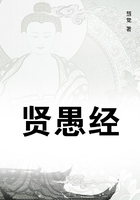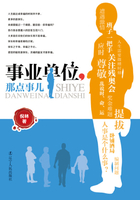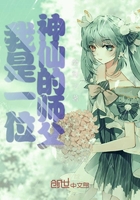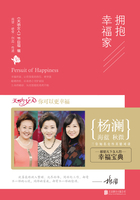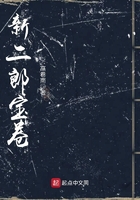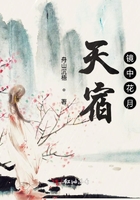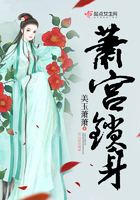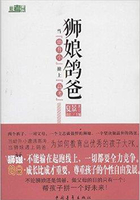Firenzuola, who nearly two centuries later (1523) pref- aces his collection of tales in a similar manner, with express reference to Boccaccio, comes assuredly nearer to the truth when he puts into the mouth of the queen of the society a formal speech on the mode of spending the hours during the stay which the company proposed to make in the country.The day was to begin with a stroll among the hills passed in philosophical talk; then followed breakfast, with music and singing, after which came the recitation, in some cool, shady spot, of a new poem, the subject of which had been given the night before; in the evening the whole party walked to a spring of water where they all sat down and each one told a tale; last of all came supper and lively conversation 'of such a kind that the women might listen to it without shame and the men might not seem to be speaking under the influence of wine.' Ban- dello, in the introductions and dedications to single novels, does not give us, it is true, such inaugural discourses as this, since the circles before which the stories are told are represented as already formed; but he gives us to understand in other ways how rich, how manifold, and how charming the conditions of society must have been.Some readers may be of opinion that no good was to be got from a world which was willing to be amused by such immoral literature.It would be juster to wonder at the secure foundations of a society which, notwithstanding these tales, still observed the rules of order and decency, and which knew how to vary such pastimes with serious and solid discussion.The need of noble forms of social intercourse was felt to be stronger than all others.To convince ourselves of it, we are not obliged to take as our standard the idealized society which Castiglione depicts as discussing the loftiest sentiments and aims of human life at the court of Guidobaldo of Urbino, and Pietro Bembo at the castle of Asolo The society described by Bandello, with all the frivolities which may be laid to its charge, enables us to form the best notion of the easy and polished dignity, of the urbane kindliness, of the intellectual freedom, of the wit and the graceful dilettantism, which distinguished these circles.A significant proof of the value of such circles lies in the fact that the women who were the centers of them could become famous and illustrious without in any way compromising their reputation.Among the patronesses of Bandello, for example, Isabella Gonzaga (born an Este) was talked of unfavorably not through any fault of her own, but on account of the too-free-lived young ladies who filled her court.Giulia Gonzaga Colonna, Ippolita Sforza married to a Bentivoglio, Bianca Rangona, Cecilia Gallerana, Camilla Scarampa, and others, were either altogether irreproachable, or their social fame threw into the shade whatever they may have done amiss.The most famous woman of Italy, Vittoria Colonna (b.1490, d.1547), the friend of Castiglioni and Michelangelo, enjoyed the reputation of a saint.It is hard to give such a picture of the unconstrained intercourse of these circles in the city, at the baths, or in the country, as will furnish literal proof of the superiority of Italy in this respect over the rest of Europe.But let us read Bandello, and then ask ourselves if anything of the same kind would have been possible, say, in France, before this kind of society was there introduced by people like himself.No doubt the supreme achievements of the human mind were then produced independently of the help of the drawing-room.Yet it would be unjust to rate the influence of the latter on art and poetry too low, if only for the reason that society helped to shape that which existed in no other country--a widespread interest in artistic production and an intelligent and critical public opinion.And apart from this, society of the kind we have described was in itself a natural flower of that life and culture which was then purely Italian, and which since then has extended to the rest of Europe.
In Florence society was powerfully affected by literature and politics.
Lorenzo the Magnificent was supreme over his circle, not, as we might be led to believe, through the princely position which he occupied, but rather through the wonderful tact he displayed in giving perfect freedom of action to the many and varied natures which surrounded him.
We see how gently he dealt with his great tutor Politian, and how the sovereignty of the poet and scholar was reconciled, though not without difficulty, with the inevitable reserve prescribed by the approaching change in the position of the house of Medici and by consideration for the sensitiveness of the wife.In return for the treatment he received, Politian became the herald and the living symbol of Medicean glory.
Lorenzo, after the fashion of a true Medici, delighted in giving an outward and artistic expression to his social amusements.In his brilliant improvisation--the Hawking Party--he gives us a humorous description of his comrades, and in the Symposium a burlesque of them, but in both cases in such a manner that we clearly feel his capacity for more serious companionship.Of this intercourse his correspondence and the records of his literary and philosophical conversation give ample proof.Some of the social unions which were afterwards formed in Florence were in part political clubs, though not without a certain poetical and philosophical character.Of this kind was the so-called Platonic Academy which met after Lorenzo's death in the gardens of the Rucellai.
At the courts of the princes, society naturally depended on the character of the ruler.After the beginning of the sixteenth century they became few in number, and these few soon lost their importance.
Rome, however, possessed in the unique court of Leo X a society to which the history of the world offers no parallel.
Education of the 'Cortigiano'

